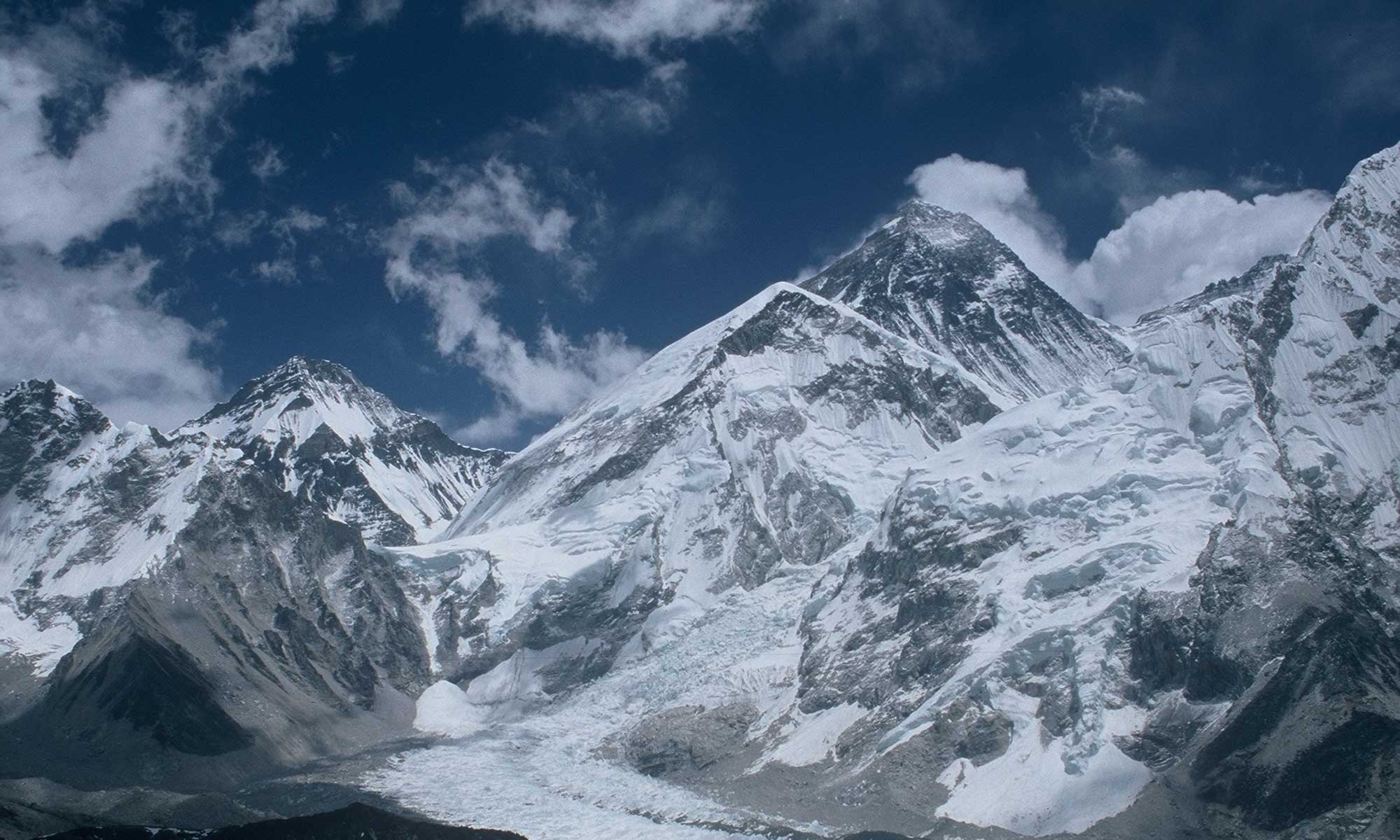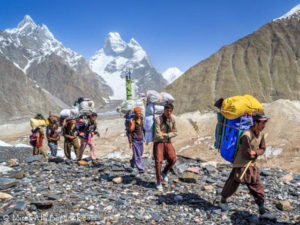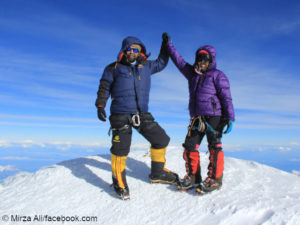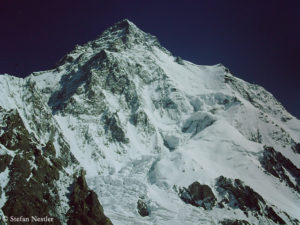The corona crisis is widening the gap between what could be and what actually is. In theory, the mountaineering season in the Karakoram would be in full swing right now. Earlier this year, 25 expedition teams had applied for permits for Pakistan’s five eight-thousanders and other mountains in the north of the country. No one has come.
“Pakistan is completely open, including the airports, but there is no tourism at all,” writes Mirza Ali Baig, head of the operator Karakorum Expeditions to me. “Summer adventure tourism is almost off. There is no possibility for mountaineering, trekking is also not taking place. Not even a single local group.”
COVID-19 curve continues to rise
The number of coronavirus infections is still rising in Pakistan. According to the Johns Hopkins University in the USA, more than 213,000 infections have been registered so far, about 4,400 people have died of COVID-19 (as of 1 July). The states of the European Union continue to warn “against unnecessary tourist trips” to the country. In northern Pakistan, many people live directly or indirectly from mountain tourism.
Aid campaign for 700 families
“As the summer is going to end soon, there are no jobs for mountain guides, cooks and porters,” writes Mirza Ali. Together with his sister Samina Baig – she was the first Pakistani woman to scale Mount Everest in 2013 and, like Mirza, climbed the Seven Summits, the highest mountains on all continents – the 36-year-old has started a crowdfunding campaign (click on this link). The goal is to provide around 700 families of porters with basic food for about half a year, especially for next winter. Mirza hopes to collect the targeted amount of 70,000 US dollars by October. “Otherwise, these people are going to suffer a lot.”
Cheaper permits than in Nepal
Last year, Pakistan took in about 40 million rupees (about 213,000 euros) by permit fees. This is significantly less than what Nepal collected for climbing permits in 2019: around 3.5 million euros. In order to attract more mountaineers, the Pakistani government had lowered the fees by 40 percent. For example, a permit for the 8,611-meter-high K2, the second highest mountain on earth, costs 7,200 dollars for a seven-member expedition team and 1,200 dollars for each additional person. For comparison: For an Everest permit in Nepal you have to pay 11,000 dollars – per climber.




One Reply to “Mountain tourism in Pakistan is on its knees”
Comments are closed.